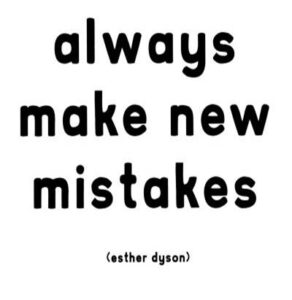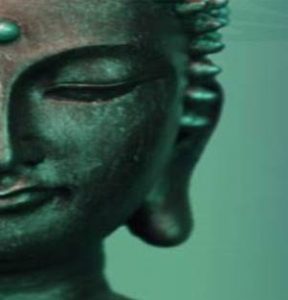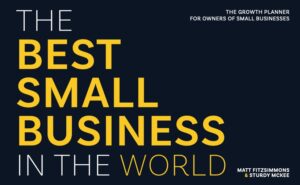There are many things that go into the making of an effective meeting. We’re sharing some of the thoughts and ideas that we’ve found to work really well in a full day workshop, especially when bringing people together from multiple businesses. We encourage you to consider these few items for your meetings and retreats, and if and where they might fit. We’ll deal with the logistics of effective meetings in a different post.
In the beginning of each workshop, we discuss three concepts that help to set the context, keep everyone focusing forward, and help us make better choices throughout the day and going forward.
After initial introductions, we discuss context. We explore the concept of context and share that each of us is operating from a different vantage point and perspective. This is critical to the discussions that we will be having throughout the course of the next 1-2 days we spend together. What we can hold and how much will vary among the group and is not fixed for each individual. We explore the idea that our contexts change over time. The information we are able absorb and process evolves and changes both in quality and quantity. We build mental frameworks that enable us to process and recall things, and as those frameworks grow, so too does our ability to take in and use information.
change over time. The information we are able absorb and process evolves and changes both in quality and quantity. We build mental frameworks that enable us to process and recall things, and as those frameworks grow, so too does our ability to take in and use information.
When I moved to China at age 19, I spoke virtually no Chinese and read even less. I remember riding home from lunch with my roommate, Bill, who had studied for years, and us seeing a movie title outside a theater. Bill did not know what the title meant, but he looked at the characters and went through a mental process to memorize them so he could look them up when we got home. Take a look at these for 10 seconds, 真情, and without looking try to write them. If you do not read Chinese, you know exactly how I felt at that moment. There was no way. But Bill looked at them for about 10 seconds and then said, “OK, I’ve got it”. Got what, I said. “I can look them up when we get home.” How, I asked. I had no concept at that point that there are radicals, stroke order, stroke count, conventions, that enabled Bill to memorize the characters fairly easily and know how to look them up when we got home. But by the time I left China a year later I could do that too. My context had expanded so that I had a framework to process more ideas and literally more words.
Another illustration we use to explain context is to have people envision a “Garden”. You can try it right now. Just close your eyes and picture a garden. After doing that, does it match with any of these Gardens? Did it match all of them? Of course not. But are they all equally valid as gardens?
The point here is that we can often be using the same words and sometimes devolve into arguing over their meaning when we truly mean very different things. So, we ask that when don’t understand, or think we disagree with what is being said during the workshop discussions, that we all agree to ask more questions about the other person’s “garden”. We might learn that they are talking about a Zen garden, a vegetable garden, or the gardens of Versailles. All very different, but with the same name.
Another of the things we do early in our workshops is introduce the idea that we cannot change the past. Whatever happened yesterday happened. Whatever happened when you were 14, or in college, or last year, it happened. And there is not a thing in the world any of us can do to change what has already happened. We can learn, we can process, we can forget . But we cannot change it.
. But we cannot change it.
What we can change is the future. Instead of getting frustrated during the workshop about things we “should have done earlier”, we acknowledge and give ourselves permission to let go of that and focus forward on the things we will do next.
The rest of today is in your control, right now. The choices you make will determine much of what happens for the remainder of today. Tomorrow is in your control and so are the days after that. We are extremely fortunate to have a great deal of freedom and control over our actions. So, our challenge is to not repeat the same mistakes, but at least make new ones. And as we try new things, we know that not everything will work out perfectly. We will make mistakes. So, we agree to learn from each other and not to repeat or own mistakes and also try to avoid those we’ve learned from others. By making new and novel mistakes we can learn new things and continue to move forward.
And the final thing we go through to kick off the day and set our group’s context is about those choices and mistakes we are going to make. Those characters, 真情 (Zhēnqíng), they mean basically to be true to yourself. Like Shakespeare’s “This above all: to thine own self be true” from Hamlet, we agree that each of us will make different choices about what is important, what actions we will take upon conclusion of the workshop, and what things we will say no to. Our contexts and our situations are each different, so therefore must our priorities and actions be. We must not be swayed by others, but set our own priorities and action items to achieve our own personal goals in our own personal situations. We basically customize our plans by applying each of these concepts.
true to yourself. Like Shakespeare’s “This above all: to thine own self be true” from Hamlet, we agree that each of us will make different choices about what is important, what actions we will take upon conclusion of the workshop, and what things we will say no to. Our contexts and our situations are each different, so therefore must our priorities and actions be. We must not be swayed by others, but set our own priorities and action items to achieve our own personal goals in our own personal situations. We basically customize our plans by applying each of these concepts.
We hope that these help you have more productive strategy days, off-sites, workshops and meetings. Acknowledging and setting context, looking forward and forgiving our pasts, and being true to ourselves in our choices and actions can have powerful impacts for all involved.
